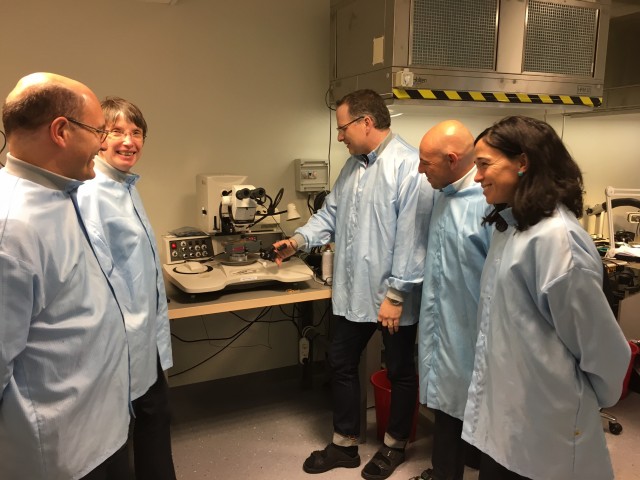In 2018 the European Space Agency will fly the ExoMars Surface Platform to the planet Mars. The space craft will carry out the instrument HABIT (HabitAbilty – Brines, Irradiance and Temperature), developed by researchers at Luleå University of Technology in Kiruna along with their partner company Omnisys from Gothenburg.
– We are very proud that our instrument has been selected by ESA. HABIT is a ground breaking multi-instrument that will be mounted on a platform on the surface of Mars and is an important part of ESA’s new mission ExoMars 2018. HABIT has the opportunity to evaluate environmental and habitability conditions on Mars, and to demonstrate that we can produce Martian liquid water for future Mars Exploration, says Javier Martín-Torres, professor of atmospheric science at Luleå University of Technology.
The instrument HABIT is being developed by an international research group led by the Professors Javier Martín-Torres and Maria-Paz Zorzano at Luleå University of Technology. The contact between the researchers and the company Omnisys was conveyed by LTU Business AB through the RIT-project.
– Our business idea is to serve successful researchers with the best and most cost effective instruments and to create great science together. This venture is in line with how we want to develop our company. Luleå University of Technology is committing a lot of resources in order to strengthen their position in space science and it is through working together with the best scientists that our company will become better. Flying to Mars and looking for water together with Prof. Martin-Torres’ team is not only interesting but also a great merit, says Martin Kores, CEO at Omnisys.
Omnisys has won contracts worth 40 million SEK regarding the next generation of meteorological satellites and have also delivered systems to several Swedish and European satellites – but landing instruments on Mars will be a new challenge.
– It will be exciting and challenging. The time plan is tight with high demands, especially when it comes to contamination demands on the Mars surface, Mr. Kores concludes.
The development of the instrument HABIT is funded by the Swedish National Space Board (SNSB) and Luleå University of Technology.
Read more about HABIT

